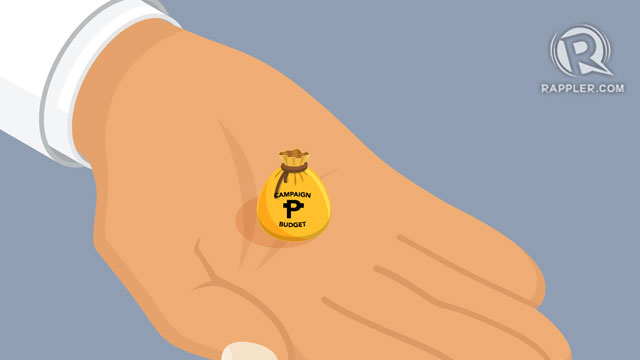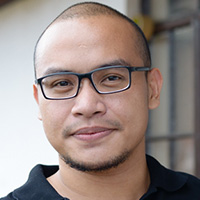
 Our campaign finance law, Republic Act 7166, was passed in 1991 or 5 presidents ago. How did we fair at implementing it? Is it time to amend it?
Our campaign finance law, Republic Act 7166, was passed in 1991 or 5 presidents ago. How did we fair at implementing it? Is it time to amend it?
RA 7166 set the foundation of our campaign finance regulations. It did not only set the maximum allowable expense that a candidate can spend, it also required all candidates (both winners and losers) and political parties to file within 30 days after the day of the election a “full, true and itemized statement of all contributions and expenditures (SOCE) in connection with the election.” To put teeth to the regulation, the law also provided for penalties, both administrative and criminal.
The intention of the law is to level the political playing field – by setting spending limits according to what less-moneyed candidates can presumably afford, the law is minimizing the advantage of moneyed candidates. The desired effect is that when, for instance, an ordinary folk and a multi-billionaire are both running for the same position, they are forced to spend, say, only P100,000, even if the billionaire can easily spend P500 million.
Twenty-eight years after its passage, the law remains virtually unchanged. The cap remains at 1991 standards: for a person running for president and vice president, the equivalent of P10 for every voter currently registered in the constituency; P3 for candidates for other psitions; and P5 for candidates without any political party and without support from any political party.
To illustrate how ridiculously low this expenditure limit is, candidates with political parties in Pateros, a municipality with a voting population of around 35,000, can only spend P105,000, while those running as independent can only spend P175,000. These amounts are not even enough to pay for posters and flyers! So how about the allowances of watchers, food and drinks of campaign staff, day-to-day expenses in going around? And we're not even talking yet about candidates who might be planning to buy votes.
These unrealistic expense cap forces many candidates to lie, hide, or under-declare expenses and contributions. If the SOCEs that they submit to Comelec are scrutinized and cross-referenced with the Bureau of Internal Revenu and other government agencies, only a handful of candidates out of the 43,000 or so vying for 18,000 positions will pass the strict audit.
Fortunately for most candidates (and unfortunately for us), the Comelec's enforcement of the campaign finance law has been problematic through the years.
First, although the campaign finance law was passed in 1991, it wasn't rigidly enforced until after the 2010 elections – or almost 20 years after its passage – so that virtually there is no record of compliance before that.
Strict monitoring of SOCE started when then-commissioner Christian Robert Lim assumed as head of the Campaign Finance Unit (now, Campaign Finance Office or “CFO”) in 2011. He irrevocably resigned on June 20, 2016, as its head following the Comelec en banc’s decision to extend the period for the filing of SOCE to accommodate the Liberal Party (LP) – an action which he called out as illegal. To me – and many Comelec insiders would agree – Commissioner Lim was still the best thing that happened to the Comelec!
But even with the unequalled passion and the drive of Commissioner Lim, proper auditing was simply physically impossible. The Campaign Finance Unit lacked manpower – most of them were contractuals who received minimal benefits – in the fact of thousands of SOCEs being submitted to the poll body every election.
The prosecution side for violators is even sadder. Under the law, overspending has two consequences: administrative disqualification and a criminal prosecution. Administrative disqualification can readily be imposed by Comelec upon the erring candidate or official when the fact of overspending is established in a disqualification case timely filed.
The criminal prosecution takes a longer route. It starts with a preliminary investigation either by the Comelec Law Department or by regular prosecutors. Upon finding of probable cause, the candidate is tried in a judicial proceeding. A perfect example is the 2013 case of overspending against Laguan gubernatorial candidate ER Ejercito. While the Comelec quickly disqualified him administratively from holding office, the criminal aspect of his case has not moved to this day; in fact, he is running once again in Laguna when he should have been already perpetually disqualified from running for any public office!
The penalty for non-filing of SOCE is an administrative fine on the first offense and perpetual disqualification on the second offense. While there was an undeniable momentum during the time of Commissioner Lim in going after non-filers, many observers have noted an unfortunate dip in enthusiasm in the present Commission en banc. There are, for example, a good volume of unresolved perpetual disqualification cases that remain unacted upon to this day.
In one case filed by Comelec’s own Campaign Finance Office, and which I'm privy to, the respondent has completely disregarded all summons (personal and published in the newspaper), yet the case remains unmoving and unacted upon since 2017 or for almost two years by now despite all the uncontested evidence showing his failure to file his SOCE twice. The respondent has even filed his certificate of candidacy for the 2019 elections and has been publicly declaring in his sorties that he is “untouchable” by Comelec!
The combination of absence of proper auditing mechanism and poor enforcement of penalties for violators is the reason why the politicians would rather lie in their SOCE, rather than reassess and fix the problem in our campaign finance law. This to me is the obvious reason why, despite the unrealistically low caps of the allowable campaign expenses, no one is moving a finger to correct them! Understandably, why would a politician seek the increase in the expense cap and draw the ire of the disgruntled public, when he can easily lie with impunity anyway?
The problem with this setup, however, is we end up punishing those who are honest and compliant with law or even push them to lie like everyone else.
In the end, what we have is a dysfunctional and loose system of regulating campaign finance, where there is no certainty that violators will be punished. This is an unfortunate betrayal of the good intentions behind RA 7166. I firmly believe that if we want an election where the playing field is truly even and fair, and where the good, competent, and deserving yet poor candidates have a real fighting chance, the thrust should be in the strict monitoring of campaign spending, not in obsessive regulation of posters and flyers which appears to be the present priority of the Commission. – Rappler.com
Emil Marañon III is an election lawyer specializing in automated election litigation and consulting. He is one of the election lawyers consulted by the camp of Vice President Leni Robredo, whose victory is being contested by former senator Ferdinand Marcos Jr. Marañon served in Comelec as chief of staff of retired Comelec Chairman Sixto Brillantes Jr. He is a partner at Trojillo Ansaldo and Marañon (TAM) Law Offices.